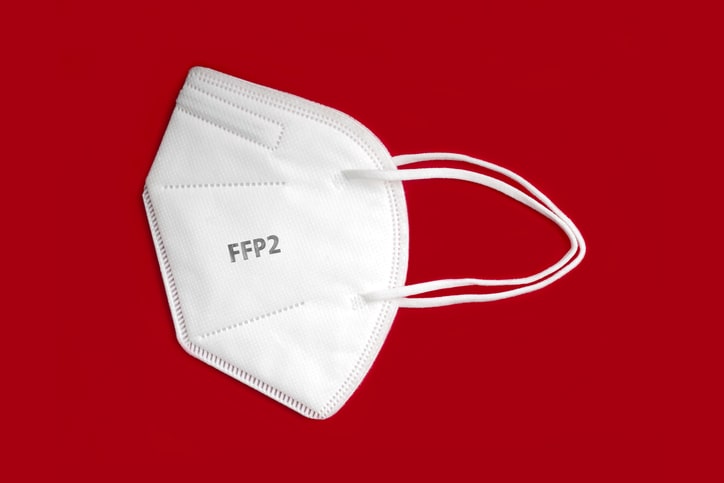By May 2021, more than 151 million people were confirmed to have been infected with SARS-CoV-2, and more than 3.1 million deaths attributable to COVID-19 had been reported worldwide. Early in the pandemic, evidence suggested a higher incidence of severe COVID-19 in patients with chronic diseases, including chronic kidney disease (CKD), and an association with acute kidney injury (AKI). There was also evidence of poor prognosis in kidney transplant recipients who developed COVID-19, with a 25% mortality rate. Later evidence indicated CKD as a risk factor for severe COVID-19.
Edmund Y. M. Chung, MD, and colleagues performed a systematic review and meta-analysis of the incidence and outcomes of COVID-19 in adults and children with CKD, including those treated with kidney replacement therapy (KRT). Results were reported in the American Journal of Kidney Diseases [2021;78(6):804-815].
The review included MEDLINE, EMBASE, and PubMed between November 1, 2019, and February 22, 2021. Retrospective and prospective cohort studies and case-control studies examining the incidence of COVID-19 or outcomes in adults and children with any stage CKD, including CKD treated with dialysis and kidney or kidney/pancreas transplant recipients with or without COVID-19. Gray literature included 29 conference abstracts, two government reports, and four preprints. CKD was defined using the Kidney Disease: Improving Global Outcomes CKD guideline and COVID-19 was defined using criteria from the World Health Organization based on a positive reverse transcriptase-polymerase chain reaction assay for SARS-CoV-2.
Data extraction included incidences of COVID-19, death, respiratory failure, dyspnea, recovery, admission to the intensive care unit, hospital admission, need for supplemental oxygen, hospital discharge, sepsis, short-term dialysis, AKI, and fatigue. The researchers adjudicated evidence certainty using an adapted GRADE (Grading of Recommendations Assessment, Development and Evaluation) framework for prognostic factor research.
The search revealed 6698 citations; of those, 348 studies were included, representing 382,407 participants with CKD and COVID-19 and 1,139,979 total participants with CKD. The analysis included 336 cohort studies (45 prospective, 245 retrospective, and 46 not identified as prospective or retrospective) and 12 case-control studies. The case-control studies included all eligible participants with CKD without KRT, participants with dialysis-dependent CKD, or kidney transplant recipients during the study period; however, CKD was not reported in controls, so only case participants with CKD were included.
A total of 110 studies reported the incidence of COVID-19 in individuals with CKD (366,931 participants with CKD and COVID-19; 772,389 total participants with CKD); 330 studies reported outcomes (381,422 participants with COVID-19), and 309 studies (373,141 participants with CKD and COVID-19 and 1,114,991 participants with CKD) reported on study duration for the calculation of incidence rates.
Participant age ranged from 11 to 79 years; five studies included children with CKD (165 participants). Eighteen studies of kidney transplant recipients reported baseline glomerular filtration rate. In 308 studies, study duration ranged from 7 to 274 days. Most of the studies were conducted in Europe, North and South America, and the Western Pacific region, and in high- to upper-middle-income countries.
In 88 studies of 14,972 participants with CKD and COVID-19 and 740,452 total participants with CKD, the incidence of COVID-19 in patients with CKD was 66 per 10,000 person-weeks (95% confidence interval [CI], 58-75). In participants with CKD without KRT, the incidence of COVID-19 was 16 per 10,000 person-weeks (95% CI, 4-33) in five studies of 701 participants with CKD and COVID-19 and 70,683 total participants with CKD.
In 59 studies of 12,208 participants with CKD and COVID-19 and 468,233 total participants with CKD, the incidence of COVID-19 in participants with CKD requiring KRT was 105 per 10,000 person-weeks (95% CI, 91-120) (low-certainty evidence). In 29 studies of 1893 participants with CKD and COVID-19 and 120,281 total participants with CKD, the incidence in kidney transplant recipients was 23 per 10,000 person-weeks (95% CI, 18-30) (low-certainty evidence).
Based on low-certainty evidence, the incidence of death in individuals with CKD and COVID-19 was 32 per 1000 person-week (95% CI, 30-35) in 229 studies with 70,922 total participants, which may be higher than in those with CKD without COVID-19 (incidence rate ratio, 10.26; 95% CI, 6.78-15.53). The incidence of death in people with COVID-19 and CKD without KRT was 40 per 1000 person-weeks (95% CI, 35-45); the incidence of death in those with CKD requiring KRT was 30 per 1000 person-weeks (95% CI, 26.35) in 107 studies with 34,639 participants.
In people with CKD and COVID-19, the overall incidence of respiratory failure was 31 per 1000 person-weeks (95% CI, 27-35), in 101 studies with 68,840 participants. The incidence of respiratory failure in those with COVID-19 and non-KRT CKD was 28 per 1000 person-weeks (95% CI, 29038) in 17 studies with 57,077 participants.
The researchers cited some limitations to the study, including the limited measurement of known confounding factors affecting the incidence and outcomes of COVID-19 in patients with CKD, including old age, male sex, being Black or South Asian, lower socioeconomic status, obesity, diabetes, malignancy, or respiratory, cardiovascular, liver, neurologic, or autoimmune diseases; the lack of reporting of prognostic outcomes in people with CKD but without COVID-19; lack of reporting on stages of CKD in most studies; reporting outcomes in only hospitalized patients in most studies; and variability in study definitions of COVID-19.
In summary, the authors said, “Our systematic review found that people with CKD may be at higher risk of COVID-19 than the general population and may be at higher risk of death than people with CKD without COVID-19. Decision-making by clinicians and policy makers should focus on preventive measures for people with CKD, particularly people receiving maintenance dialysis. Future studies that measure and adjust for confounders, and that are adequately powered to report the COVID-19 COS [Core Outcomes Set] and SONG [Standardized Outcomes in Nephrology] CKD core outcomes in people with CKD with and without COVID-19, are needed to better evaluate the prognostic effect of COVID-19 in people with CKD.”
Takeaway Points
- Researchers reported results of a systematic review and meta-analysis to examine the incidence and outcomes of COVID-19 in individuals with chronic kidney disease (CKD).
- Data for the analysis were pooled from 348 studies that included a total of more than one million individuals with CKD. COVID-19 occurred more frequently in people receiving maintenance dialysis than in those with non-dialysis dependent CKD.
- The risk of death may be 10-fold higher in people with CKD and COVID-19 than in those with CKD without COVID-19.







 © 2025 Mashup Media, LLC, a Formedics Property. All Rights Reserved.
© 2025 Mashup Media, LLC, a Formedics Property. All Rights Reserved.